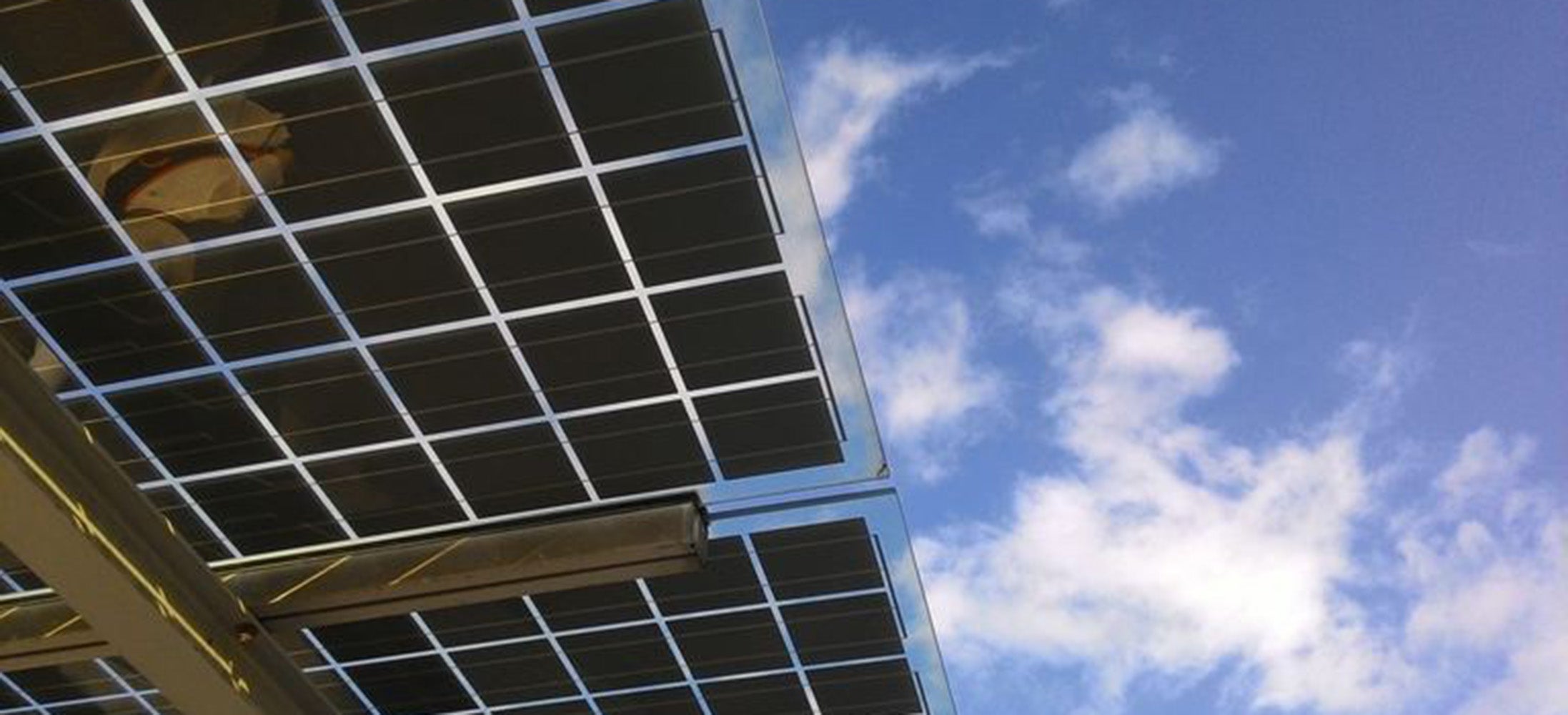Limiting the increase in the global temperature to below 2 degrees C by midcentury is going to be expensive. According to one recent report, from the International Energy Agency, the global community will have to invest roughly $3.5 trillion each year in clean energy alone — or about double current levels.
And while the cost of not acting on climate change could be even higher (roughly equal to one-third the entire economy,
according to one report), spending on such scale is daunting to many individuals who’d like to be part of the solution.
A new business launched by recent graduates of the Yale School of Forestry & Environmental Studies (F&ES) wants to give them a chance to do their part.
Raise Green is aiming to launch an online platform that enables everyday investors to support projects that tackle the climate challenge — from solar installations to electric vehicle-charging stations — while also strengthening their local communities.
According to its founders, the financing model will democratize renewable energy ownership, make communities stronger and more resilient, and help promote a transition to a clean energy economy.
“At its core, Raise Green is a two-sided marketplace that provides people who want to build solar or other types of climate-solution projects with the tools they need to do that and to get it financed,” said
Franz Hochstrasser, ’18 M.E.M., the chief executive officer and co-founder. “We do that by pairing them with individuals who might not have time or interest in originating projects themselves but want to be part of the solution.
“Maybe they have a few hundreds dollars in their savings accounts that they want to put to work to make the world a better place.”
The company, which was co-founded by
Matthew Moroney ’18 M.E.M., the chief operating officer, is submitting an application to be a registered crowdfunding intermediary enabled by
Regulation Crowdfunding of the Securities Act. The rules are regulated by the U.S. Securities Exchange Commission and the Financial Industry Regulatory Authority.
Their first proof-of-concept,
New Haven Community Solar, is currently using crowdfunding to support installation of a solar array on new homes being built for recently homeless people in New Haven. The two-unit homes are being built as part of a partnership between the Yale School of Architecture and Columbus House, a local nonprofit that serves people who are homeless or at risk of becoming homeless.
“We really have been taught in the School of Forestry thinking globally but acting locally,”
Kwasi Ansu ’18 M.E.M., another co-founder,
told the New Haven Independent. The New Haven Community Solar project, he said, offers “a local avenue with great incentives that people can get behind.”
Ultimately, though, the Raise Green team wants to scale up to provide a menu of options for investors interested in supporting projects that tackle the climate challenge while also improving lives in their local community, including diesel generator replacements and microgrids.
Moroney says the financing model provides a badly needed alternative to public equities markets that have failed to address the urgency of the global climate challenge, and an economic system that leaves too many people out of the process.
“Our vision is that everyday people can pool their money together, and collectively own projects that improve their communities,” said Moroney. “We imagine divesting a few percent of people’s retirement funds from public equities and bonds to community-scale climate investments.”
It also promotes sustainable business practices that many existing mechanisms — such as corporate sustainability indexes — simply don’t do enough of, he said. Rather than support large corporations whose principal contribution to sustainability is disclosing their greenhouse gas emissions, this mechanism enables people to purposefully support projects that are creating more sustainable energy solutions.
“We don’t think we’re going to solve climate change,” Moroney said. “But we think if we can add a few thousand projects — and tens of thousands of new investors — that can help have a significant effect. We want to re-think how society can finance and fund the tens of thousands of community scale projects that are so badly needed.”
Hochstrasser and Moroney began working together on energy economics in the solar industry while they were students enrolled in a course taught by Kenneth Gillingham, an associate professor of economics at F&ES. Gillingham’s research on clean energy adoption, they said, has also been an inspiration to the company.
Gillingham said it is gratifying to see former students apply those classroom lessons into real-world solutions.
“It’s exciting to see our recent graduates use their knowledge of clean energy, economics, and finance to kick-start a novel new project where people can put their money where their mouth is by investing in projects that might be left out of the public markets,” he said.
